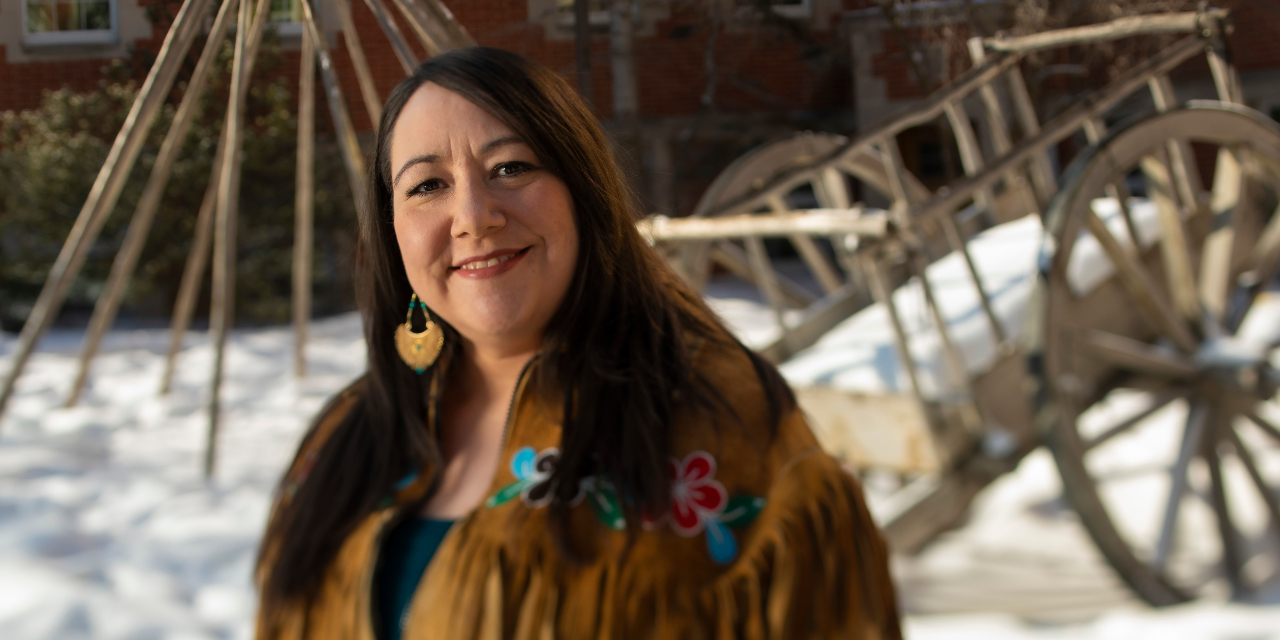For Shalene Jobin, the work she does in Indigenous communities is both a privilege and a responsibility.
"One of the teachings that I've been taught is that we all have a role to play in our society and all have gifts to give," said Jobin, an associate professor in the University of Alberta's Faculty of Native Studies and head of the faculty's Indigenous Governance Program.
Jobin's current major project is the Wahkohtowin Law and Governance Lodge, an initiative she co-leads with Hadley Friedland from the Faculty of Law. An interdisciplinary research unit between the faculties of Native studies and law, the Wahkohtowin Lodge responds to the expressed needs of Indigenous communities and organizations who want strategies to identify, rebuild and develop law and governance structures that resonate within their own legal and governance traditions.
"The long-term hope is that we establish really respectful, reciprocal long-term relationships with Indigenous communities. So as opposed to one-off projects, how can the Wahkohtowin Law and Governance Lodge bring together the best that the university has to offer on certain law and governance topics, and bring those people and those research initiatives together to really support Indigenous communities?" she explained.
Throughout her career, Jobin's work in the area of Indigenous governance has been about connecting with Indigenous communities and organizations, responding to the needs they express and facilitating others to do the same.
But her passion for community engagement extends beyond her own research and governance work.
Jobin led the Indigenous Partnership Development Program, a five-year partnership between the Faculty of Native Studies and Executive Education at the Alberta School of Business. The program helped non-Indigenous business and public sector employees work more effectively and with greater understanding alongside Indigenous communities. The curriculum was developed by an advisory group of Indigenous leaders and Indigenous and non-Indigenous executives in different sectors of the workplace, and was based on the needs of Indigenous communities.
"The Truth and Reconciliation Commission's Calls to Action talk about how important public education is for non-Indigenous society. For better or worse, we're all on these lands to stay, so how do we have better relationships with each other where all of us can live miyo pimatisiwin, the good life?"
Jobin also wants to build capacity for respectful community engagement in her students. To that end, she made the completion of a governance-related project for an Indigenous community or organization a mandatory part of the Certificate in Indigenous Governance and Partnership.
"We teach about respectful and reciprocal research relationships, we teach about protocol. I think it's really important that we give students opportunities to learn in a structured way where they can come back with questions. And our community partners are also willing to mentor them through the process."
For Jobin, the relationship she has with the community is reciprocal, one that she benefits from as much as she gives.
"I'm very curious by nature, so I'm always learning, especially when I'm working with Indigenous communities. I love learning from Indigenous Elders and I get the opportunity to do that a lot in my work," she said.
As much as she enjoys it, connecting with Indigenous communities and organizations is a responsibility of universities and university scholars, Jobin said.
"Universities, and specifically the University of Alberta, is on Indigenous lands, and so in and of that fact alone, we at the U of A have a responsibility to those lands and the peoples that emanate from them.
"We have a responsibility to learn those histories in all their complexities, to support Indigenous and non-Indigenous students and to really find out what Indigenous communities want from the university-and when they do come to us, that we let them lead those research agendas and support in any way we can," she said.
For all her work, Jobin is receiving the 2020 Community Scholar Award, as part of the U of A Community Connections Awards. It recognizes tenure-track faculty, sessional instructors or lecturers who have demonstrated exceptional commitment to community research and scholarship by sharing and translating their area of expertise for the betterment of the community.
"It's really been an honour to be able to work with Indigenous communities and share the gifts of the university," she said.
Receiving a Community Connections Award is an acknowledgement that the U of A values having good, respectful, reciprocal relationships with Indigenous communities, said Jobin.
"None of this work was done by myself alone; it was all in partnership with other people at the university or other people in Indigenous communities. I think first and foremost it's an acknowledgement that the U of A wants to do things in a good way and centre Indigenous communities.
"Indigenous nations hold the intellectual and ontological resources to live out miyo pimatisiwin on these lands. So we at the U of A, being housed on Indigenous lands, really have an ethical responsibility to support Indigenous communities' lead on how to live out those teachings and how to be on this land in a good way."
